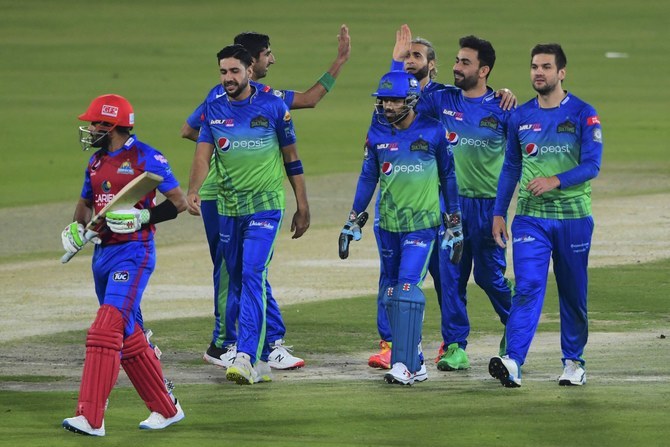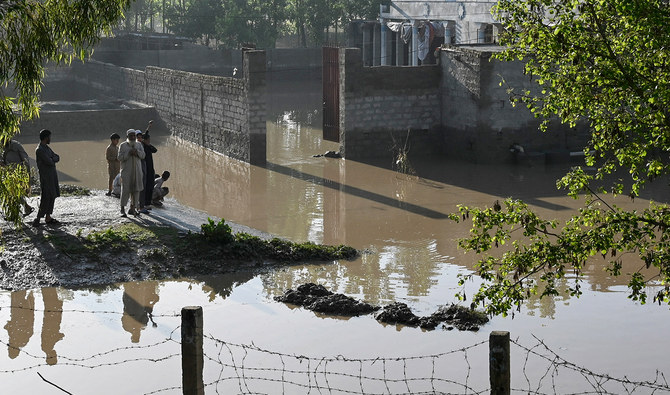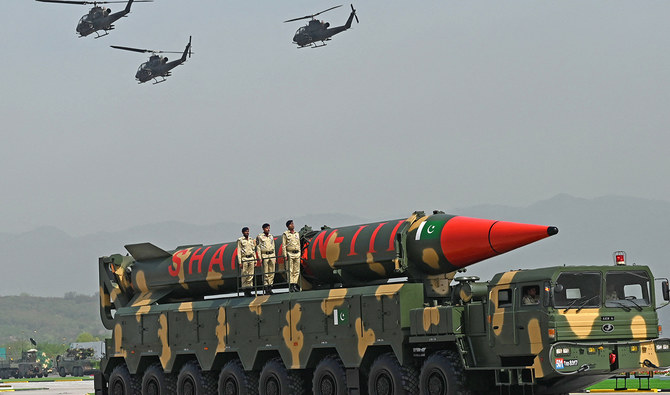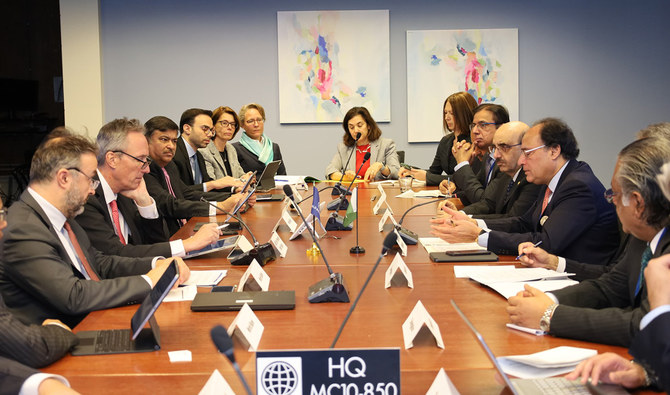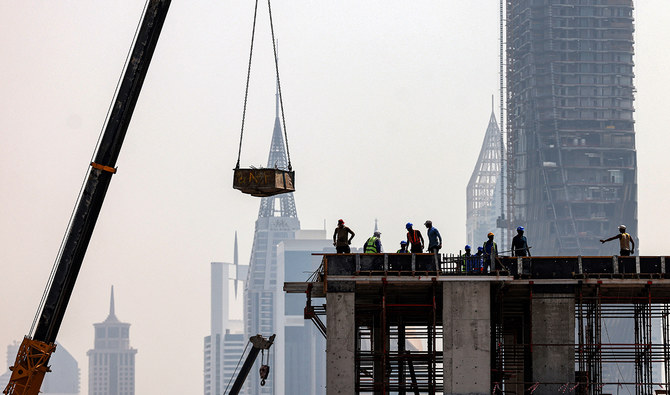ISLAMABAD: Since its launch in 2016, Pakistan’s domestic cricket league has lured top names in international cricket, catapulted new talent to global fame, cultivated a loyal base of millions of fans, drawn corporate sponsorships from multinational firms selling everything from cellphones to real estate and doled out salaries comparable to other international leagues to become what is, arguably, the biggest brand in Pakistan.
In getting here, the Pakistan Super League tournament has not only transformed the business of cricket in Pakistan, but the country itself, ending years of isolation after a 2009 attack on Sri Lankan cricketers in Lahore forced Pakistan to play home matches in the United Arab Emirates and led foreign players to refuse to play on Pakistani soil.
Last year, Pakistan’s biggest bank, Habib Bank Limited, reacquired the title sponsorship of the Pakistan Cricket Board’s (PCB) flagship tournament for another four-year cycle (2022-2025).
PCB announced at the time that HBL had not only exceeded the reserve price in reacquiring the rights “but sealed it with a 55 percent jump from the last cycle, which speaks volumes of their belief in the PSL brand.”
Though the PCB did not announce the exact amount of the agreement, a PCB source said the bank signed the new deal for $22.2 million for four years. Previously, PCB had signed a three-year deal with HBL (2019-2021) for $14.5 million. The first deal, which was signed in 2016 when PSL was launched, was for $5.2 million (2016-2018).
The price to acquire the digital streaming rights for PSL, which features the fast and furious, made-for-tv brand of cricket called Twenty20, has also skyrocketed. The highest bid for this edition was submitted by Daraz and marked a 175 percent increase from the last two years.
PSL also signed a two-year broadcast deal worth $24 million with local sports channels A Sports and PTV Sports, a 50 percent increase from the last cycle.
The six-team league has also drawn record television and digital viewership over the years.
Over 80 million people, roughly 70 percent of Pakistan’s TV-viewing public, tuned in to watch the final game of the 2019 edition of PSL, the last one before coronavirus-related disruptions and postponements hit the series.
“This proves that the HBL PSL is a strong brand and its commercial partners see [financial] value in it,” Samiul Hasan Burney, a media and communications director at PCB, told Arab News, commenting on the increase in the sale price of the broadcasting and live streaming rights.
It was “the quality of cricket,” he said, that had made PSL the brand it was today.
“Any [cricket] brand rises because of the quality of cricket on display,” Burney said. “Credit goes to the PCB management, its delivery and the fact that it turned [PSL] into a brand that sponsors would want to associate themselves with.”
Burney declined to provide a figure when asked how much revenue PSL was estimated to generate for PCB this year.
“Revenue collection is done by taking into account the amount of money generated and the expenses and payments deducted from them,” he said, saying the figure would be confirmed only after the series concluded.
As per the recent agreement between the PCB and the six franchises, he said, the board received 5 percent of the revenue generated by the league, while the rest went to the franchises. Both the board and the franchises then willingly invested the money back into Pakistan cricket.
“When PCB makes that 5 percent revenue, it will reinvest it into Pakistan cricket,” Burney said. “Be it in the form of player welfare, pathways development, infrastructure or women’s cricket, whatever money the PCB earns, it will obviously be reinvested [in Pakistan cricket].”
Najam Sethi, a former PCB chairman who founded the PSL series in 2016, agreed that growing investment in the T20 league had benefited Pakistani cricket in “multiple ways.”
“It has doubled PCB’s annual revenues from all sources, enabling it to improve cricketing facilities across the country and uplift local cricketers,” he told Arab News, saying PSL was also the main reason for the return of international cricket to Pakistan, which had benefited the private sector.
“It has breathed [life into] the private sector’s dynamism and initiative into the game, similar to the case of other leading cricketing nations,” he said, adding that the revival of Pakistan’s economy and the end of the coronavirus pandemic would “flush it [PSL] with lucrative sponsorships and roaring crowds.”
In the future, the former PCB chief saw the tournament getting “bigger and starrier and more competitive“: “It will also become more encompassing with the addition of more venues like Rawalpindi, Peshawar, Faisalabad.”
Other than being a coming of age for the business of sports in Pakistan, PSL has also been a turning-point for young Pakistani cricketers who, because of international isolation, had missed out on opportunities to learn from leading international players.
“They hadn’t even dreamed of sharing dressing rooms with some of them [international stars] … This is a rich learning experience for our youngsters,” Aalia Rasheed, Pakistan’s first female cricket anchor and a senior analyst at Geo News, said. “Big names like Viv Richards are sharing stories with young cricketers and talking to them about his techniques which goes a long way in helping them. It is amazing to see legends like Wasim Akram, Hashim Amla and various other big names associated with the PSL.”
PSL had now become the golden standard for young players,” Rasheed said.
“They perform in Pakistan’s domestic structure and give their best in international T20Is so that they can be selected for the next PSL.”
“For Pakistan cricket, PSL is a revolution. From the players’ point of view, the maximum a player can earn from PSL is Rs2.5 crores ($142,000) and the minimum they can earn is Rs1.65 million ($9,300).”
“The PSL is a festival in itself where the cricketer derives a lot of benefits,” Javed Miandad, a former Pakistan captain popularly known as “the greatest batsman Pakistan has ever produced,” said. “It teaches young cricketers a lot.
PSL had been a godsend for young cricketing talent in Pakistan who, in the absence of a T20 league, could only earn from Pakistan’s domestic cricket structure in case they failed to make it to the national team, Miandad said.
Most importantly, Rahseed said, because PSL had brought in revenue for PCB, there was more money to invest in Pakistan’s first-class cricket structure, stadiums and pitches.
“Unfortunately, Pakistan is not allotted a lot of ODI and Test matches [in a calendar year],” she said. “Hence, this is an excellent way for us to earn the much-needed revenue and reinvest it into Pakistan cricket.”



